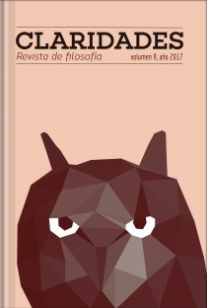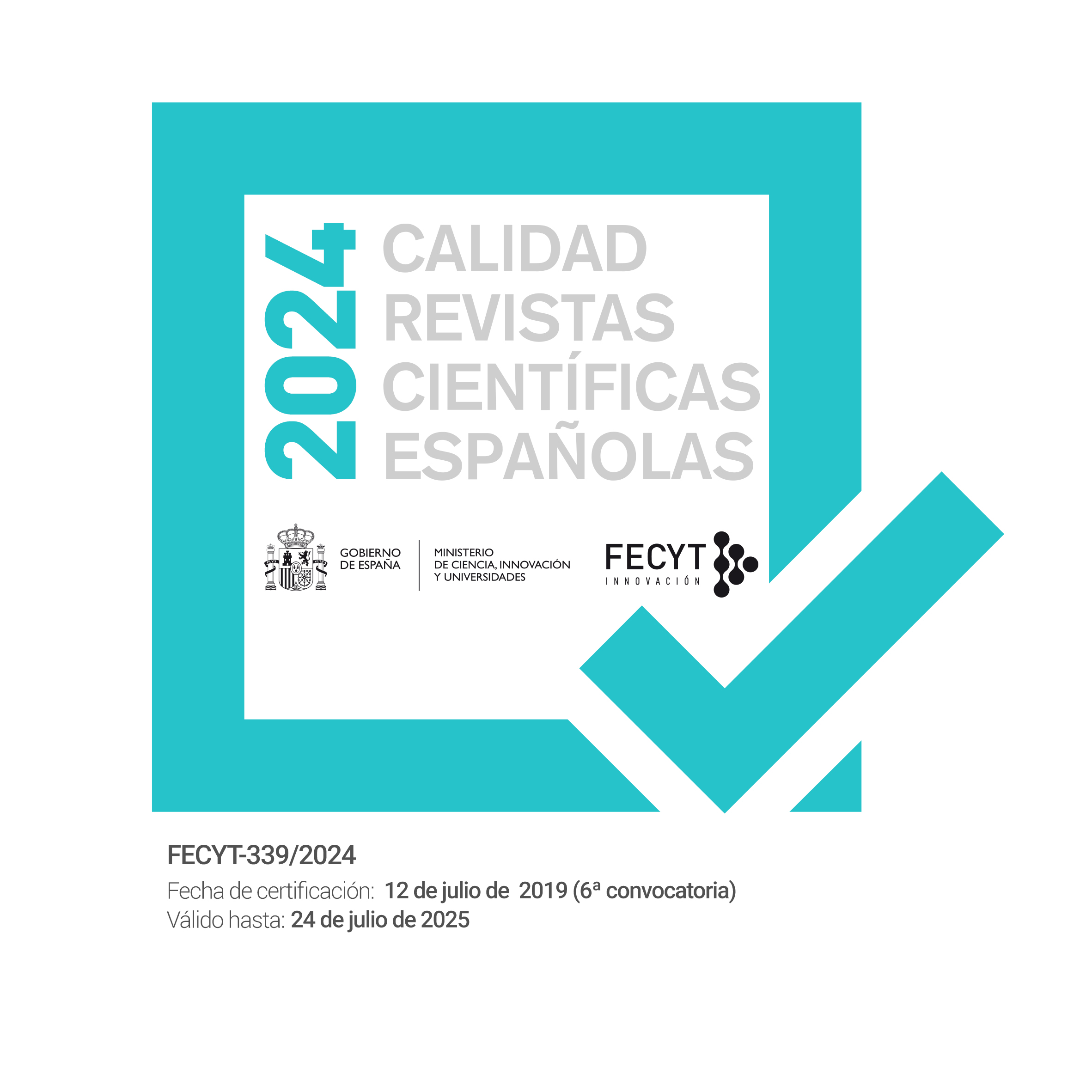Writings of Inequivalence. Rereading the "Culture Industry" in Theodor W. Adorno
DOI:
https://doi.org/10.24310/Claridadescrf.v9i0.3734Keywords:
ADORNO, CULTURE INDUSTRY, EQUIVALENCE, COMMODITY, IDENTITY, WRITING, MONTAGE,Abstract
This paper proposes a reinterpretation of the concept of «culture industry» initially formulated by Horkheimer and Adorno, paying special attention to other interventions of Adorno. The preliminary hypothesis states the incorrectness of the usual interpretation that reduces it to be the conceptual tool of a hierarchical modernist affirmation, and argues the need to place it as the centerpiece of a dialectic of mass culture. Once cleared the modernist misunderstanding, and from a philosophical reading of it, we argue that the concept plays a key role in the project of a general critique of the equivalence of profound implications today. In that project are intertwined the critique of commodity and the critique of metaphysics in a same philosophical frame, of deep actuality. Finally, the montage is postulated as one of the privileged forms of inscription of inequivalence in the structure of the cultural industry, thus becoming not only an aesthetic device but in an eminent form of materialistic interpretation.
Downloads
Metrics
Publication Facts
Reviewer profiles N/A
Author statements
Indexed in
-
—
- Academic society
- N/A
- Publisher
- Asociación para la promoción de la filosofía y la cultura en Málaga (FICUM) y UMAEditorial
References
Adorno, Th. W. (with the assistance of George Simpson): «On popu-lar music» en Studies in Philosophie and Social Science, vol. IX, n° 1, New York, The Institute of Social Research. 1941.
- Dialéctica negativa. Madrid: Taurus, 1975.
- Minima Moralia. Reflexiones desde la vida dañada. Madrid: Taurus, 1988.
- Notas sobre literatura (Obra completa, 11). Madrid, Akal, 2003.
- Teoría estética (Obra completa, 7). Madrid, Akal, 2004.
- Composición para el cine (junto a Hanns Eisler) / El fiel correpetidor (Obra completa, 15). Madrid, Akal, 2007a.
- «El esquema de la cultura de masas» en M. Horkheimer y Th. Adorno, Th., Dialéctica de la Ilustración. Fragmentos filosóficos (Obra completa, 3). Madrid, Akal, 2007b.
- Crítica de la cultura y sociedad I (Obra completa, 10/1). Madrid, Akal, 2008a.
- Monografías musicales (Obra completa, 13). Madrid, Akal, 2008b.
- Crítica de la cultura y sociedad II (Obra completa, 10/2). Madrid, Akal, 2009a.
- Disonancias (Obra completa, 14). Madrid, Akal, 2009b.
- Escritos musicales V (Obra completa, 18). Madrid, Akal, 2011.
Adorno, Th. W. y Benjamin, W.: Correspondencia (1928-1940). Ma-drid, Trotta, 1998.
Benjamin, W.: El origen del drama barroco alemán. Madrid, Taurus, 1990.
Blanco, P., Carrillo, J., Claramonte, J. y Expósito, M. (eds.): Modos de hacer. Arte crítico, esfera pública y acción directa. Ediciones Universidad de Salamanca, 2001.
Carroll, N.: Una filosofía del arte de masas. Madrid, Visor, 2002.
Duarte, R. [en línea]: «Industria cultural 2.0» en Constelaciones. Revista de Teoría Crítica, vol. 3, http://www.constelaciones-rtc.net/VOL_03.html, 2011.
Habermas, J.: El discurso filosófico de la modernidad. Madrid, Taurus, 1989.
Hansen, M.: Introduction to Adorno, «Transparencies on Film» en New German Critique, n° 24-25, pp. 186-198, 1981-1982.
- «Mass Culture as Hieroglyphic Writing: Adorno, Derrida, Kracauer» en New German Critique, n° 56, Special Issue on The-odor W. Adorno, pp. 43-73, 1992.
- «Foreword», en A. Kluge y O. Negt, Public Sphere and Experience. Toward an Analysis of the Bourgeois and Proletarian Public Sphere. Minneapolis, University of Minessota Press, 1993.
Honneth, A.: Crítica del poder. Fases en la reflexión de una Teoría Crítica de la sociedad. Madrid, Machado Libros, 2009.
Horkheimer, M. y Adorno, Th. W.: Dialéctica de la Ilustración. Fragmen-tos filosóficos. Madrid, Trotta, 2001.
Huyssen, A.: «Introduction to Adorno [Culture Industry Reconsid-ered]» en New German Critique, n° 6, pp. 3-11, 1975.
- Después de la gran división. Modernismo, cultura de masas, posmoder-nismo. Buenos Aires, Adriana Hidalgo, 2006.
Kluge, A. y Negt, O.: Public Sphere and Experience. Toward an Analysis of the Bourgeois and Proletarian Public Sphere. Minneapolis: University of Minessota Press, 1993.
Koch, G.: Mimesis and Bilderverbot. Screen, n° 34 (3), pp. 211-222, 1993.
Levin, Th.: «For the Record: Adorno on Music in the Age of Its Technological Reproductibility» en October, vol. 55, pp. 23-47, 1990.
Maiso, J.: «Dialéctica de la gran división. Theodor W. Adorno y los medios de masas» en M. Cabot, El pensamiento de Theodor W. Adorno. Balances y perspectivas. Palma, Universitàt de les Illes Balears, 2007.
Maiso, J. y Viejo, B.: «Imágenes en negativo. Notas introductorias a “Transparencias cinematográficas”, de Theodor Adorno» en Archivos de la filmoteca, vol. 52, 2006.
Martín-Barbero, J.: De los medios a las mediaciones. México, Gustavo Gili, 1987.
Nancy, J.-L.: La verdad de la democracia. Buenos Aires, Amorrortu, 2009.
Sánchez, J. J.: «Introducción. Sentido y alcance de Dialéctica de la Ilus-tración» en M. Horkheimer y Th. Adorno, Dialéctica de la Ilustración. Frag-mentos filosóficos. Madrid, Trotta, 2001.
Viejo, B.: Música moderna para un nuevo cine. Eisler, Adorno y el Film Music Proyect. Madrid, Akal, 2008.
Wiggershaus, R.: La Escuela de Fráncfort. México, FCE, 2010.
Downloads
Published
How to Cite
Issue
Section
License
Esta revista provee acceso libre inmediato a su contenido bajo el principio de hacer disponible gratuitamente la investigación al público. Todos los contenidos publicados en Claridades. Revista de Filosofía, están sujetos a la licencia Creative Commons Reconocimento-NoComercia-Compartirigual 4.0 cuyo texto completo puede consultar en <http://creativecommons.org/licenses/by-nc-sa/4.0>
Es responsabilidad de los autores/as obtener los permisos necesarios de las imágenes que están sujetas a derechos de autor.
Los autores/as cuyas contribuciones sean aceptadas para su publicación en esta revista conservarán el derecho no exclusivo de utilizar sus
contribuciones con fines académicos, de investigación y educativos, incluyendo el auto-archivo o depósito en repositorios de acceso abierto de cualquier tipo.
La edición electrónica de esta revista esta editada por la Editorial de la Universidad de Málaga (UmaEditorial), siendo necesario citar la procedencia en cualquier reproducción parcial o total.

















6.png)
